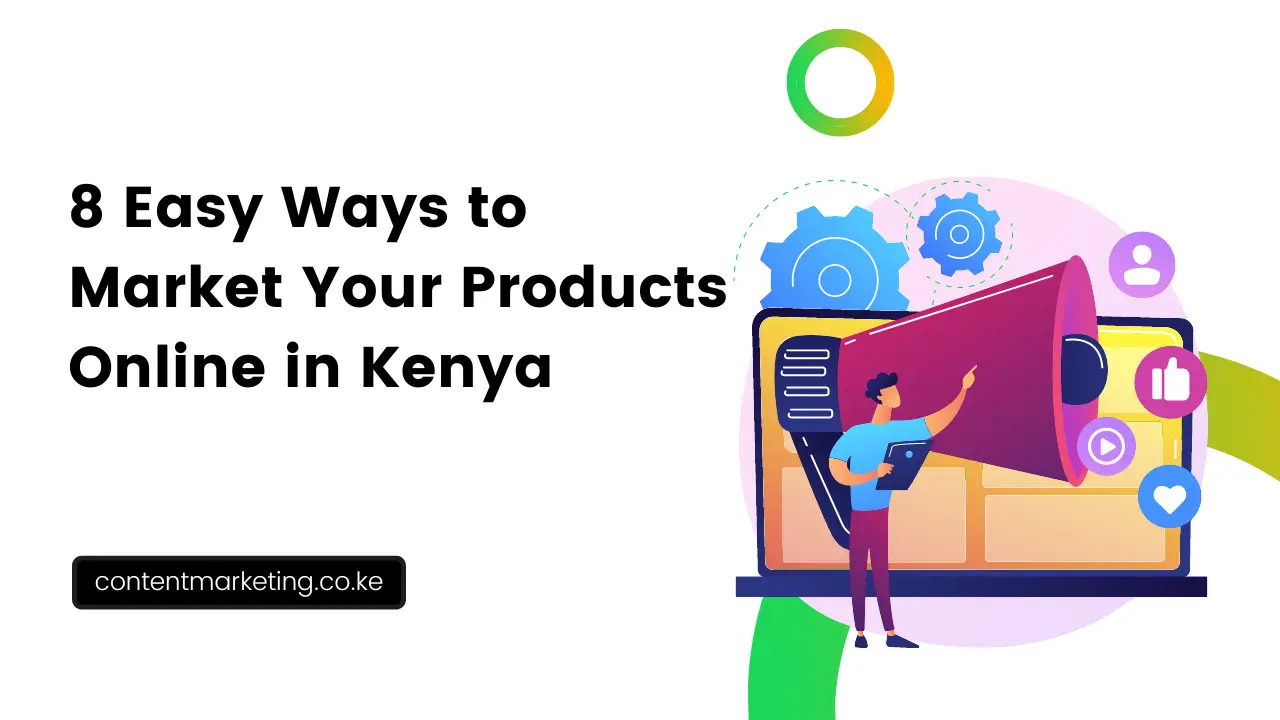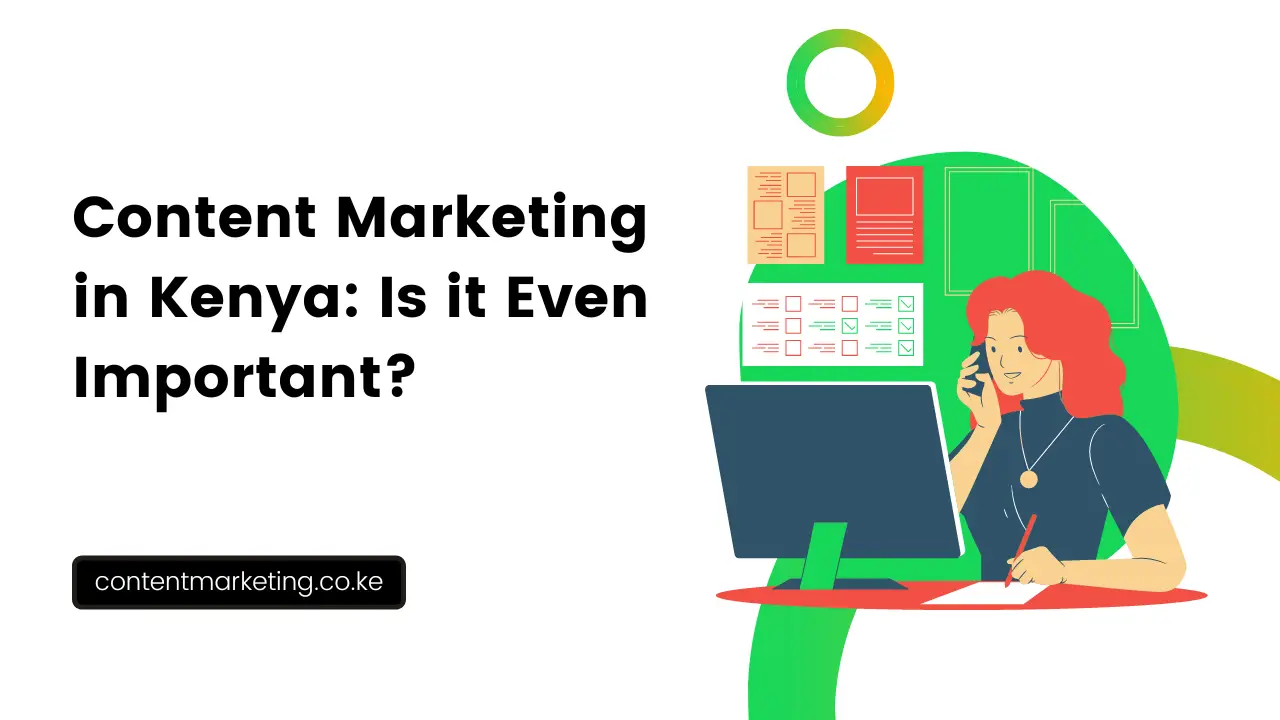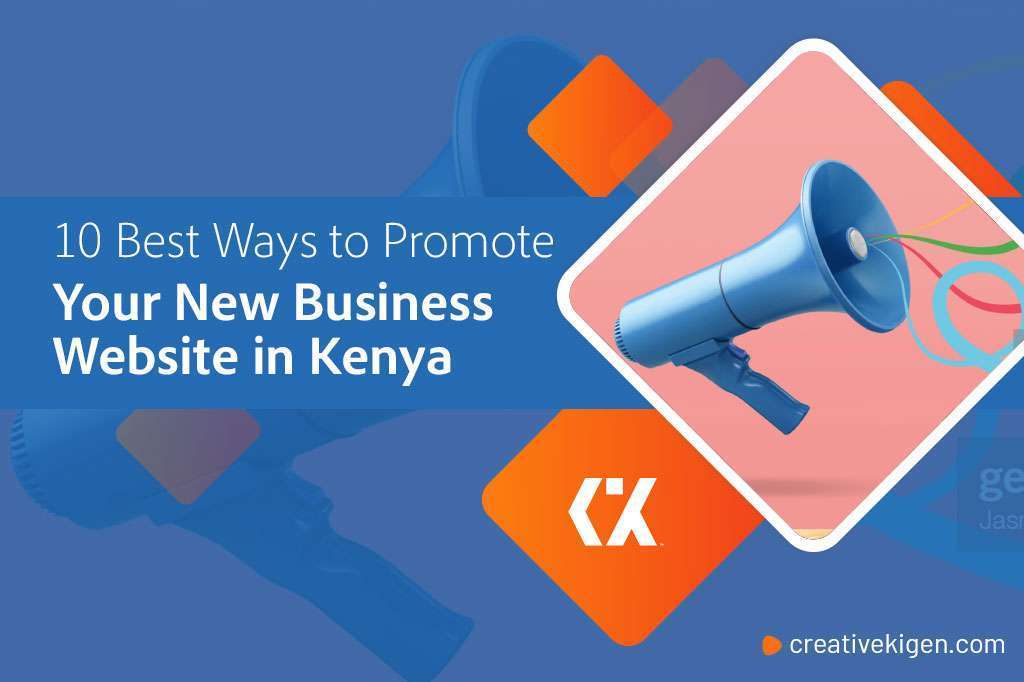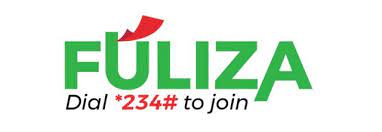If you’re a blogger or online business owner in Kenya, you’ve probably wondered about the most effective ways to use content marketing to promote your brand. With the ever-growing digital landscape, it’s crucial to stand out and attract the right audience. In this article, we’ll explore some tried and tested techniques that can help you make the most of your content marketing efforts and boost your visibility in the Kenyan market. From leveraging social media platforms to creating compelling blog posts, you’ll discover practical strategies to drive traffic and engage with your target audience effectively.

This image is property of contentmarketing.co.ke.
Creating high-quality and valuable content
Identifying your target audience
The first step in any successful content marketing strategy is identifying your target audience. Without a clear understanding of who your audience is, it will be difficult to create content that resonates with them and meets their needs. Start by conducting market research to gather information about your target audience’s demographics, interests, and pain points. This will allow you to tailor your content specifically to their needs, ensuring it is valuable and engaging.
Researching trending topics and keywords
To create content that is relevant and timely, it’s important to conduct research on trending topics and keywords in your industry. By staying up-to-date with the latest trends and using relevant keywords in your content, you can increase your chances of ranking higher in search engine results and attracting more organic traffic. Use keyword research tools to identify popular keywords related to your niche and incorporate them naturally into your content.
Using different types of content formats
Diversifying your content formats can help you reach a wider audience and keep them engaged. Experiment with different types of content such as blog posts, videos, infographics, podcasts, and case studies. Each format has its own unique advantages and appeals to different types of learners. By providing various content formats, you can cater to the preferences of your audience and maximize your reach.
Providing solutions to common problems
One of the most effective ways to create valuable content is by providing solutions to common problems or challenges faced by your target audience. By understanding their pain points and addressing them in your content, you establish yourself as a helpful and trustworthy resource. Conduct surveys, analyze customer feedback, and engage with your audience to identify the most prevalent problems they face. Then, create content that offers practical solutions and actionable advice.
Including relevant and eye-catching visuals
In today’s visually-oriented world, incorporating relevant and eye-catching visuals into your content is crucial. Visuals such as images, infographics, and videos can enhance the overall user experience, capture attention, and make your content more shareable. When selecting visuals, ensure they are relevant to the topic and align with your brand’s visual identity. High-quality and aesthetically pleasing visuals can significantly increase engagement with your content.
Optimizing your content for search engines and keywords
Conducting keyword research
Keyword research is an essential component of content optimization. By conducting thorough keyword research, you can identify the most relevant and high-traffic keywords in your industry. Use keyword research tools to determine which keywords will help your content rank higher in search engine results. Consider factors such as search volume, competition, and relevance to your target audience.
Using targeted keywords in your content
Once you have identified your target keywords, it’s important to strategically incorporate them into your content. Use your keywords naturally throughout your content, including in headings, subheadings, meta tags, and body text. However, avoid keyword stuffing, as this can negatively impact your search engine rankings. Aim for a balance between keyword usage and readability to ensure your content remains valuable and engaging.
Optimizing meta tags and descriptions
Meta tags and descriptions provide search engines and users with a summary of what your content is about. Optimizing these elements can improve your content’s visibility in search engine results and increase click-through rates. Make sure your meta tags accurately describe the content and include relevant keywords. Craft compelling and concise meta descriptions that encourage users to click on your content.
Including internal and external links
Adding internal and external links to your content is not only beneficial for search engine optimization but also enhances the user experience. Internal links lead users to other relevant pages on your website, encouraging them to explore more of your content. External links to credible sources provide readers with additional information and build credibility for your content. Ensure your links are relevant and enhance the overall value of your content.
Optimizing for mobile devices
With an increasing number of people accessing the internet through mobile devices, optimizing your content for mobile is crucial. Ensure your website and content are responsive and mobile-friendly, providing a seamless user experience across different devices. Optimize your images and videos to load quickly on mobile devices, as slow loading times can lead to high bounce rates. By prioritizing mobile optimization, you can effectively reach and engage your target audience.

This image is property of contentmarketing.co.ke.
Promoting your content through social media channels
Choosing the right social media platforms
With numerous social media platforms available, it’s important to choose the ones that align with your target audience and content objectives. Research the demographics and user behaviors of different social media platforms to determine which ones are most suitable for your content promotion efforts. Facebook, Instagram, Twitter, LinkedIn, and Pinterest are popular options to consider.
Creating engaging and shareable content
To effectively promote your content on social media, it should be engaging and shareable. Craft compelling headlines and captions that grab attention and encourage users to click on and share your content. Use high-quality visuals, videos, and infographics to make your content visually appealing and more likely to be shared. Incorporate storytelling techniques and evoke emotions to make your content memorable and shareworthy.
Utilizing hashtags and trending topics
Hashtags and trending topics can significantly amplify the reach of your content on social media. Research relevant hashtags that are popular and commonly used within your industry and include them in your social media posts. This will help your content to be discovered by users who are searching or following those hashtags. Additionally, stay updated with trending topics and incorporate them into your content to capitalize on current conversations and increase engagement.
Engaging with your audience
Social media is not just a platform for broadcasting your content, but also an opportunity to engage with your audience. Reply to comments, messages, and mentions in a timely and genuine manner. Ask questions, initiate discussions, and encourage user-generated content. By actively participating in conversations and fostering a sense of community, you can build brand loyalty and generate more engagement with your content.
Collaborating with influencers
Influencer marketing can be a powerful tool for promoting your content and reaching a wider audience. Identify influencers in your industry who align with your brand values and have a significant following. Collaborate with them to create content that showcases your brand and offers value to their audience. Influencers can help amplify your content’s reach, increase brand visibility, and drive traffic to your blog or online business.
Leveraging email marketing to promote your content
Building an email list
Building an email list is a valuable asset for promoting your content and nurturing relationships with your audience. Offer incentives such as lead magnets or exclusive content to encourage visitors to subscribe to your email list. Use opt-in forms strategically placed on your website to capture email addresses. Focus on growing your email list organically and ensure you comply with email marketing regulations.
Creating compelling email content
To effectively promote your content through email marketing, you need to create compelling email content that grabs your subscribers’ attention. Craft attention-grabbing subject lines that entice recipients to open your emails. Personalize your emails to make them feel more relevant and tailored to each subscriber. Include snippets or teasers of your content and direct subscribers to your blog or online business for more information.
Segmenting your email list
Segmenting your email list allows you to send targeted content that is more relevant to each subscriber’s interests and needs. Categorize your subscribers based on their demographics, preferences, purchase history, or engagement level with your content. This way, you can send personalized emails that resonate with each segment, increasing the chances of them engaging with your content and taking the desired action.
Including call-to-action buttons
Effective email content includes clear and compelling call-to-action (CTA) buttons that prompt readers to take action. Whether it’s directing them to read a specific blog post, download a free resource, or make a purchase, your CTA should be persuasive and easy to find. Use contrasting colors, concise and action-oriented language, and compelling reasons to entice readers to click on your CTA buttons.
Analyzing and optimizing email performance
To ensure the effectiveness of your email marketing efforts, it’s essential to regularly analyze and optimize your email performance. Use email analytics tools to track metrics such as open rates, click-through rates, and conversion rates. Analyze the data to identify trends, patterns, and areas for improvement. Experiment with different email formats, subject lines, and content to optimize your email marketing strategy and achieve better results.

This image is property of contentmarketing.co.ke.
Guest blogging and influencer outreach
Identifying relevant guest blogging opportunities
Guest blogging can help you expand your audience reach, establish credibility, and drive traffic to your blog or online business. Identify relevant blogs and websites in your industry that accept guest contributions. Look for platforms that have an engaged audience and a good reputation. Consider the topics they cover, the quality of their content, and the level of engagement they have with their audience.
Pitching valuable content ideas to bloggers and websites
When reaching out to bloggers and websites for guest blogging opportunities, it’s important to pitch valuable content ideas that align with their audience and provide unique insights. Tailor your pitches to each platform and demonstrate how your content can add value to their readers. Present your expertise and showcase your writing style to increase the chances of being accepted as a guest contributor.
Building relationships with influencers
Building relationships with influencers can open doors to collaboration opportunities and help you reach a wider audience. Engage with influencers on social media by liking, sharing, and commenting on their content. Offer value by sharing their content with your audience or mentioning them in your own content. Personalize your outreach and show genuine interest in their work. Building authentic relationships takes time and effort but can yield valuable long-term partnerships.
Collaborating on content creation
Collaborating with influencers on content creation can lead to mutually beneficial outcomes. Brainstorm ideas together, leveraging each other’s expertise and perspectives. Co-create content such as blog posts, videos, or social media campaigns that showcase both your brand and the influencer’s. By combining resources and reaching both your audiences, you can generate more exposure, engagement, and traffic.
Leveraging influencer’s audience
One of the main benefits of collaborating with influencers is gaining access to their audience. As influencers have built a loyal following, their recommendations and endorsements can carry significant weight. When creating content with influencers, ensure it is tailored to their audience’s interests and preferences. By tapping into their established trust and credibility, you can effectively promote your blog or online business to a wider audience.
Utilizing search engine optimization techniques
Optimizing website speed and performance
Website speed and performance play a crucial role in search engine optimization and user experience. Optimize your website by minimizing page loading times, compressing images, and leveraging caching techniques. Implement responsive design to ensure your website functions seamlessly on different devices. A fast and user-friendly website not only improves your search engine rankings but also enhances the overall user experience.
Creating a user-friendly website structure
A user-friendly website structure is essential for search engine optimization and usability. Organize your content logically with clear navigation menus and concise URLs. Use descriptive headings and subheadings to make your content scannable and easy to understand. Make sure your website is easy to navigate and free from broken links or errors. A well-structured website allows search engines to crawl and index your content effectively.
Optimizing meta tags and descriptions
Optimizing meta tags and descriptions is key to improving your website’s visibility in search engine results. Craft concise and keyword-rich meta tags that accurately describe each webpage. Include relevant keywords in meta descriptions to entice users to click on your website. Avoid duplicate meta tags and descriptions, as this can lead to confusion and lower search engine rankings. Regularly review and update your meta tags and descriptions to stay relevant and competitive.
Generating high-quality backlinks
Backlinks from reputable and authoritative websites can significantly boost your search engine rankings. Focus on building high-quality backlinks through guest blogging, influencer collaborations, and by creating valuable content that others naturally want to link to. Engage with your industry’s online community and provide valuable insights to establish yourself as a reputable source of information. Monitor your backlinks and disavow any low-quality or spammy links that may negatively impact your SEO efforts.
Regularly updating and repurposing old content
To maintain your website’s relevance and improve your search engine rankings, it’s important to regularly update and repurpose old content. Update outdated information, add new insights, and improve the overall quality of your content. Consider repurposing your content into different formats such as videos, infographics, or podcasts to reach a wider audience. Regularly auditing your content and refreshing it can enhance your SEO efforts and sustain organic traffic.

This image is property of contentmarketing.co.ke.
Engaging with your audience through comments and feedback
Encouraging comments on your blog posts and articles
Encouraging comments on your blog posts and articles can foster a sense of community and increase engagement. Enable a user-friendly commenting system on your website and prompt readers to share their thoughts and opinions. Ask open-ended questions in your content to encourage discussions. Respond to comments with gratitude and genuine interest, further encouraging others to engage with your content.
Responding to comments and feedback in a timely manner
Responding to comments and feedback in a timely manner shows your audience that you value their input and appreciate their engagement. Regularly monitor your blog posts, articles, and social media platforms for comments. Respond to comments promptly, whether they are positive or negative. Address any concerns or queries and express gratitude for positive feedback. Prompt and thoughtful responses can help foster a loyal and engaged audience.
Asking questions and starting discussions
To encourage audience engagement, ask questions and initiate discussions in your content. Pose thought-provoking questions that prompt readers to think and share their thoughts in the comments section. Spark debates or share controversial opinions, but always maintain a respectful and open-minded approach. By starting meaningful discussions, you create opportunities for your audience to connect with you and each other.
Utilizing a feedback form or survey
To gather feedback on your content and gain insights into your audience’s preferences, consider utilizing a feedback form or survey. Ask questions about their content preferences, pain points, and what they find most valuable. Actively seek feedback to understand what areas you can improve on and what content resonates most with your audience. Use the feedback collected to refine your content marketing strategy and tailor your content to better meet their needs.
Monitoring and analyzing audience engagement
Monitoring and analyzing audience engagement metrics can provide valuable insights into the effectiveness of your content marketing efforts. Use analytics tools to track metrics such as page views, time on page, bounce rates, and social media shares. Analyze the data to identify patterns, popular content topics, and areas for improvement. Continuously monitor and analyze audience engagement to refine your content strategy and create content that resonates with your audience.
Collaborating with other bloggers and businesses
Identifying potential collaboration opportunities
Collaborating with other bloggers and businesses in your industry can expand your reach and audience. Identify potential collaboration opportunities by researching and networking within your niche. Look for bloggers or businesses with complementary products or services. Consider the overlap in your target audiences and the potential benefits of collaboration. Building relationships and exploring mutually beneficial collaborations can help you tap into new audiences.
Creating mutually beneficial partnerships
When approached with collaboration opportunities, aim to create mutually beneficial partnerships. Consider the goals and values of the other party and ensure they align with your own. Look for ways you can add value to each other’s audience and leverage your respective strengths. This can include cross-promotion, co-creating content, or joint marketing campaigns. By working together, you can increase brand visibility and gain exposure to new potential customers.
Co-creating content and cross-promoting
Co-creating content with other bloggers and businesses offers a unique opportunity to leverage each other’s expertise and reach. Collaborate on blog posts, videos, podcasts, or social media campaigns that serve the interests of both your audiences. Cross-promote the content across your respective channels to expand your reach and increase engagement. This mutually beneficial approach strengthens relationships and helps you tap into new markets.
Sharing resources and expertise
Collaborating with other bloggers and businesses allows you to share resources and expertise, benefiting both parties. Share valuable insights, industry knowledge, or research findings with your collaborators. Offer to guest post on each other’s blogs, providing a fresh perspective to both audiences. Share each other’s content on social media platforms to increase visibility. Sharing resources and expertise helps you build credibility, establish valuable connections, and strengthen your content marketing efforts.
Increasing brand visibility and credibility
Collaborating with other bloggers and businesses can significantly enhance your brand’s visibility and credibility. By associating yourself with reputable and trusted partners, you can gain the trust and recognition of their audience. This increases the likelihood of your content being shared, referred, and engaged with. As your brand visibility grows, so does your credibility, positioning you as an authority in your industry and attracting more opportunities for collaboration.

This image is property of creativekigen.com.
Monitoring and analyzing your content marketing efforts
Using analytics tools to track website traffic and engagement
Analytics tools offer valuable insights into your content marketing efforts by tracking website traffic, user behavior, and engagement metrics. Utilize tools such as Google Analytics to monitor website metrics including page views, unique visitors, and time on page. Identify popular content and the sources of your traffic to refine your content marketing strategy. Regularly review and analyze website analytics to understand what is resonating with your audience and what can be improved.
Analyzing social media metrics and audience demographics
Social media platforms provide various metrics that allow you to track the performance and engagement of your content. Analyze metrics such as reach, impressions, engagements, and follower growth to evaluate the effectiveness of your social media efforts. Identify your audience demographics, including age, location, and interests, to better understand who is engaging with your content. This data can inform your content strategy and help you tailor your messaging to better resonate with your audience.
Monitoring keyword rankings and search engine visibility
Monitoring keyword rankings and search engine visibility is essential to understanding how well your content is performing in search engine results. Use SEO tools to track your target keywords and monitor changes in rankings over time. Analyze your website’s search engine visibility and organic traffic to identify areas for improvement. Regularly monitor and adjust your SEO strategy to maintain and improve your content’s visibility in search engine rankings.
Measuring conversion rates and ROI
Measuring conversion rates and return on investment (ROI) is crucial in determining the success of your content marketing efforts. Set up conversion tracking to measure the number of leads, sales, or desired actions generated from your content. Calculate the ROI by comparing your content marketing expenses to the revenue generated from your content efforts. By tracking and analyzing these metrics, you can make data-driven decisions and allocate resources effectively.
Making data-driven adjustments and improvements
Based on the insights gained from monitoring and analyzing your content marketing efforts, make data-driven adjustments and improvements to your strategy. Identify trends, patterns, and areas for improvement in your content’s performance. Experiment with different content formats, topics, and promotion techniques to optimize your content marketing efforts. Regularly test and measure the results of your adjustments to continuously improve and refine your strategy.
Staying updated with industry trends and best practices
Following industry blogs and websites
Stay updated with the latest industry trends and best practices by following industry blogs and websites. Subscribe to newsletters, RSS feeds, or social media accounts of reputable sources in your industry for regular updates. Read articles, case studies, and thought leadership pieces to stay informed about emerging trends, changes in consumer behavior, and innovative content marketing strategies. Keeping up with industry news helps you remain competitive and adapt your strategies accordingly.
Attending relevant conferences and webinars
Attending conferences and webinars related to your industry is a valuable way to stay updated with the latest trends and learn from industry experts. Participate in sessions, workshops, and panel discussions to gain insights and knowledge about content marketing. Networking with professionals in your field can also lead to valuable connections and potential collaboration opportunities. By actively participating in industry events, you position yourself as an informed and proactive content marketer.
Joining online communities and forums
Joining online communities and forums specific to your industry allows you to engage with like-minded professionals and stay abreast of industry trends. Participate in discussions, ask questions, and share insights within these communities. It’s an opportunity to learn from others, gain different perspectives, and discover new content marketing strategies. Actively participating in online communities can broaden your knowledge, help you troubleshoot challenges, and build valuable connections.
Networking with professionals in the field
Networking with professionals in the field is key to staying updated with industry trends and establishing valuable connections. Attend industry events, join professional associations, and engage with industry-specific groups on social media platforms. Actively reach out to professionals in your niche to build relationships and exchange ideas. Networking opens doors to collaborations, joint ventures, and opportunities to learn from experienced content marketers.
Continuously learning and adapting strategies
Content marketing is constantly evolving, and it’s important to continuously learn and adapt your strategies to stay ahead of the curve. Invest in your professional development by taking courses, reading books, or attending workshops that focus on content marketing. Keep experimenting with new tools, tactics, and content formats to leverage emerging trends. The ability to adapt and remain flexible in your strategies will ensure your content marketing efforts continue to be effective in promoting your blog or online business in Kenya.




